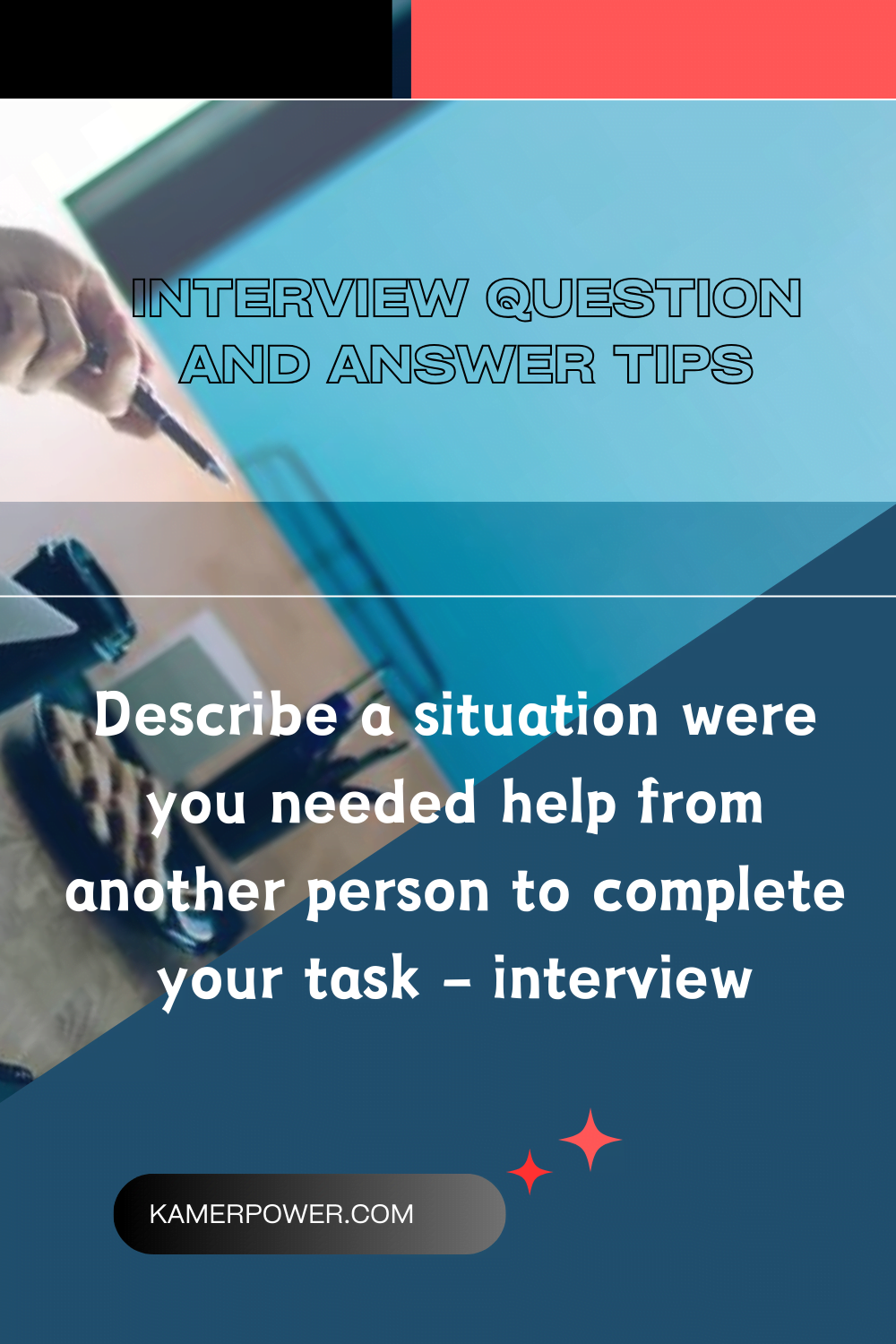Describe a situation were you needed help from another person to complete your task interview
Describe a Situation were you needed help from another person to complete your task interview. This is a work productivity balance question. When an interviewer asks you to describe how you’d handle a situation where you were required to finish multiple tasks by the end of the day, you can safely bet that handling multiple projects at the same time is going to be part and parcel of your (potential) new job.
Why the interviewer is asking this question? The interviewer wants to know that you are both willing to request help if and when needed, but that you also are not highly dependent on others for completing your work. So the interviewer is looking for the ability to work independently while also seeking guidance and direction at appropriate times.

Contents
What’s a Situational Interview Question?
Situational interview questions – also known as behavioral questions – are questions that ask you to share a previous (work-related) experience and how you reacted. What the interviewer gets from this is an insight into how you react to certain work situations. While your resume gives the recruiter an overall introduction to your education and experiences, your answer to situational interview questions helps interviewers understand your character.
Similar situational interview questions asked:
- Tell me about a time where you needed the help of others.
- How long do you wait before asking for assistance?
- How and when do you ask for help?
- What do you do when you get stuck in your work?
Best way in answering this question.
Select a project or assignment which you could not have reasonably completed on your own, where you requested help from others in an appropriate way, maximizing both your productivity and the productivity of the person assisting you. The interviewer wants to hear your strategy—your ideas—on how to handle bringing different tasks (likely, one with different levels of complexity and priority) across the same end-of-day finish line.
Sample examples of how to answer the question “Describe a situation where you had to request assistance on a project”.
Mistakes You Should Avoid
The interviewer is not expecting you to be a superhero. Don’t be thrown by the question, and make sure your answer is appropriate and honest by avoiding the following mistakes:
- Saying that you’d keep working until you completed everything, no matter how late the hour, is not a good answer. It says nothing about your ability to think on your feet, and nothing about your ability to analyze a time-sensitive situation, and then strategize towards a solution.
- Steer clear of general, short answers, such as, “I’d find a way to get it all done,” or “I’d cross that bridge when I get to it.”
- Don’t display negative feelings towards multi-tasking or having a heavy workload. For example, don’t say you dread it, and don’t subtly roll your eyes at the asking of the question. If you’re the type of person who fires on all cylinders when presented with the seemingly insurmountable task of getting a lot of different tasks done by 5 pm, note that.
Example of how to answer this question as an experienced candidates:
“In my current role, I was assigned to develop a new feature for our software which would involve a system call to an API with which I had not worked previously. So I started doing research to understand the API and logged my questions as I went. Some of the questions I was able to solve on my own through further independent research, but there were two questions where I needed help from one of the Principal Engineers on our team.
I sent him an e-mail with the questions and asked if he wanted to meet or just go back and forth on e-mail. He said it would be quicker to meet, so we met later that afternoon for a quick scrum session to map out how the feature would perform relative to the API. He was very helpful and was able to answer both of my questions right away, as well as give additional suggestions for further improving the overall feature design…”

Answering Situational Interview Questions With The STAR Method
STAR is an acronym that stands for Situation, Task, Action, and Result. That’s the structure you should follow when giving your answer to situational questions. Even outside of job interviews, telling a story can get messy and confusing. And while in most situations you only risk boring your friends, at a job interview the stakes are much higher.
Break STAR down gives you:
- Situation – Start by explaining the setting of the story and giving the interviewer some context.
- Task – Talk about your role in the story (what were your duties and responsibilities).
- Action – Explain what you did to carry out your duties or how you dealt with the situation.
- Result – Wrap up your answer and talk about whether the situation was solved or not. What were the results? you can also use data and number.
Recommendation